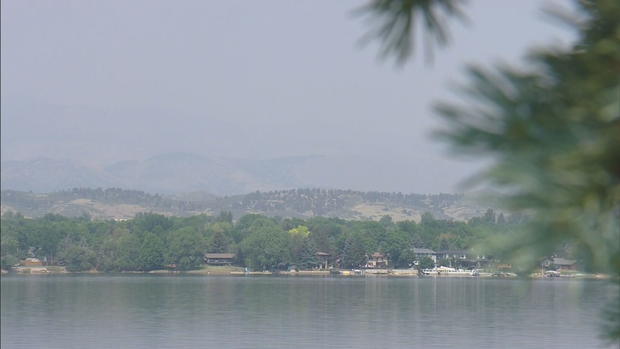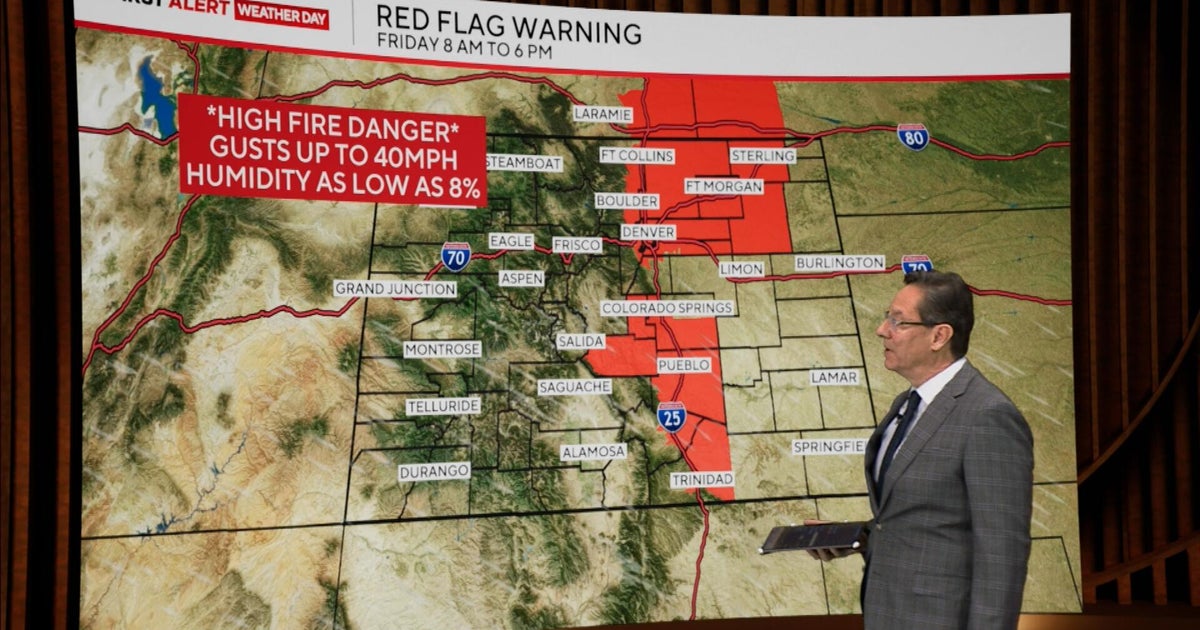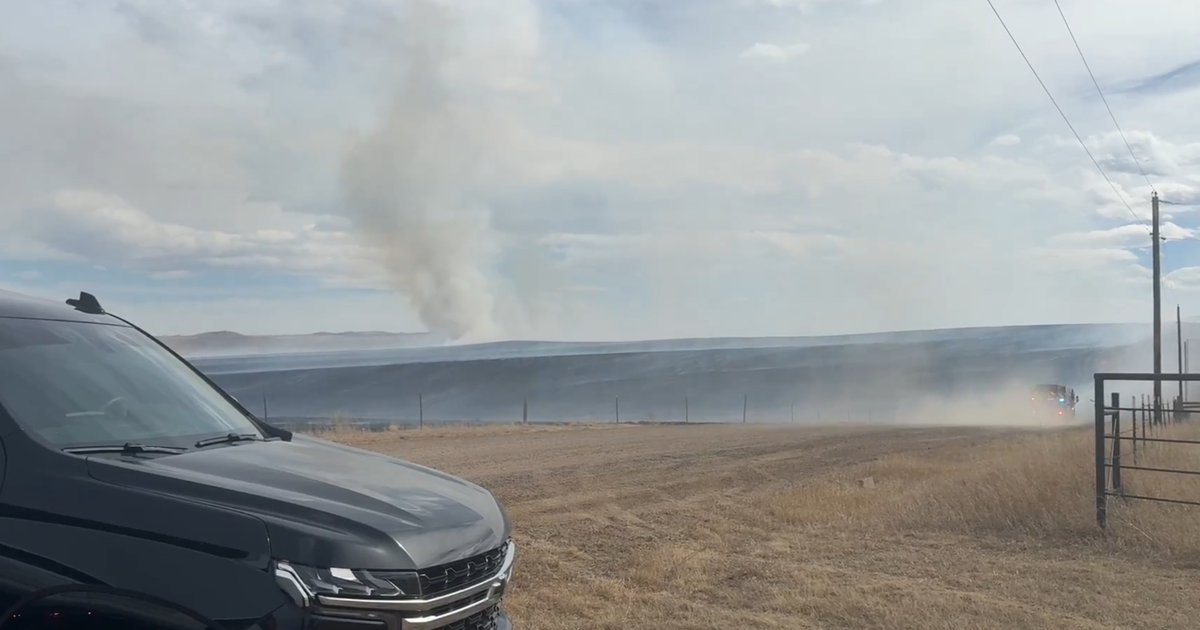Coloradans Advised To Limit Time Outdoors During Hazy, Smoky Conditions
LARIMER COUNTY, Colo. (CBS4) - Many Coloradans woke up Monday to find the skies filled with haze and the Rocky Mountains barely visible. While in recent years Coloradans have grown accustomed to that visual courtesy historic and devastating wildfires in Colorado, the haze on Monday came from a fire in Arizona.
The haze can cause health concerns for many. From subtle side effects like itchy and watery eyes, to more severe symptoms like difficulty breathing, health officials say Coloradans should be aware of the threat the smoky skies bring.
"Breathing wise it is going to start affecting people, it is going to be an issue," said Chris Manley, Environmental Health Director doe Larimer County. "Anyone who has lung issues in general, asthma, lung irritation, it is going to be enhanced when we get smoke in this area."
Larimer County issued a notice to residents that they did not need to call 911 to report the haze as a potential fire in Colorado. However, the sheriff's office did encourage anyone who saw flames or a plume of smoke to report it immediately.
"The smoke makes a big visual impact, but typically when we have high ozone days, we are not seeing that," Manley told CBS4's Dillon Thomas.
Manley said our current ozone conditions are also making the air quality in Colorado, including Larimer County, concerning for many.
Ozone is created by multiple contributing factors including heat and emissions from vehicles and other motors. Even fueling your car can contribute to ozone during the middle of the day.
"If we have a high smoke day like we are seeing today, plus we have emissions from vehicles and lawnmowers and those volatile organic compounds mixing, it is only compounding issues with lung irritation, asthma and breathing in general," Manley said.
Coloradans can lower their contributions to the ozone issues by carpooling or taking public transit when possible. Also, those who need to mow their lawn should try and do so in the evening hours.
"Anything we can reduce to the trips in our vehicles will reduce the ozone in our area," Manley said.








